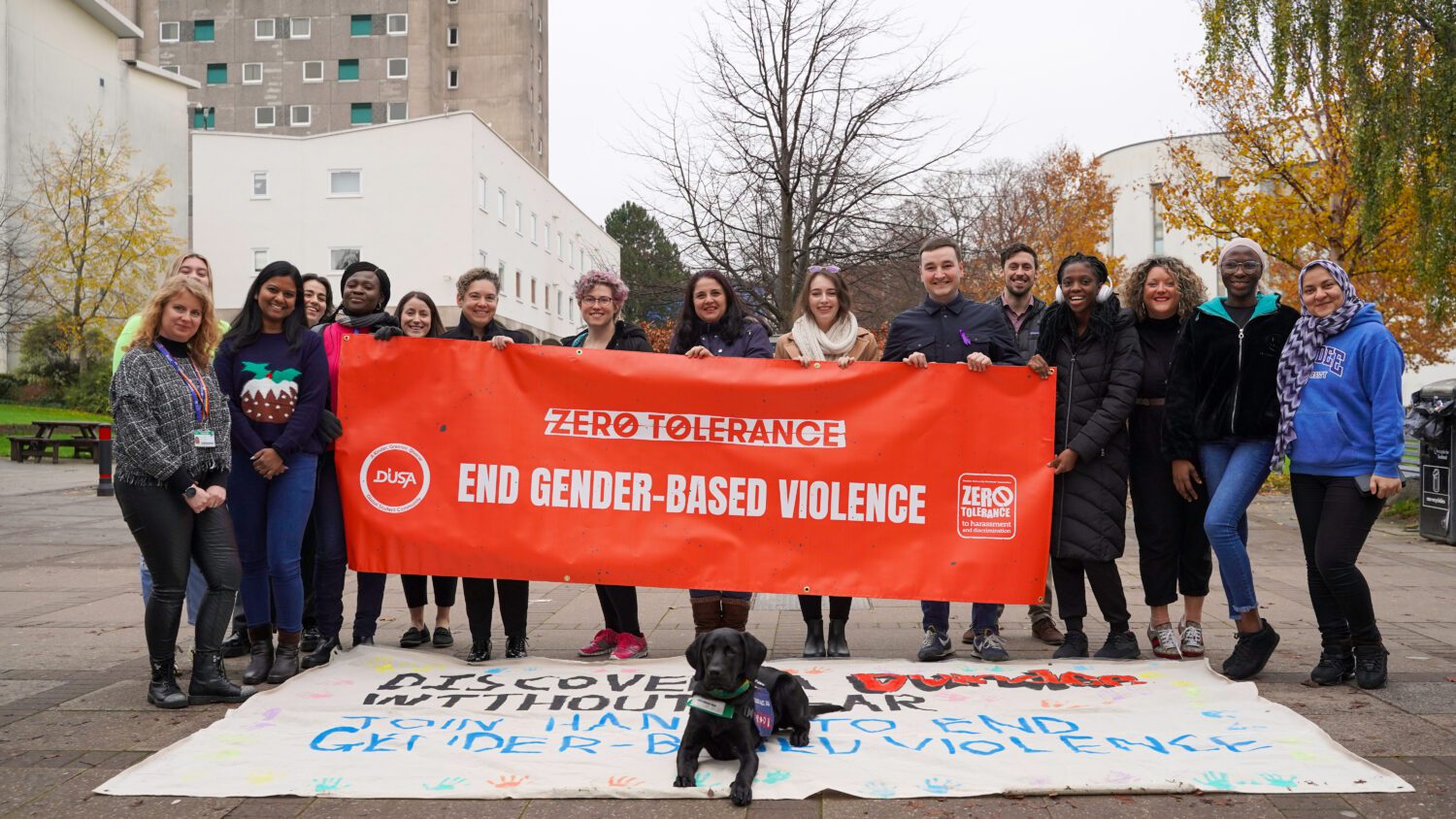
DUSA Exec statement on Supreme Court ruling and support for trans students
We are disappointed by the Supreme Court’s ruling that “the terms woman and sex in the Equality Act 2010 refer to a biological woman and biological sex.”

Every year, from November 25th to December 10th, the world observes the “16 Days of Activism Against Gender-Based Violence.” This global campaign aims to raise awareness and take action against one of the most pervasive and insidious human rights violations – violence against women.
In this blog post, we will delve into the alarming statistics surrounding gender-based violence in the UK and worldwide, emphasising the importance of collective action and support.
Forms of Gender-Based Violence
1) Domestic Violence
In the UK, domestic violence remains a critical issue, with an estimated 1.6 million women experiencing domestic abuse each year. Shockingly, two women are killed every week as a result of domestic violence.
2) Sexual Assault
Sexual assault is another grim reality, with the Crime Survey for England and Wales reporting that 20% of women have experienced some form of sexual assault since the age of 16.
3) Online Harassment
The digital age has brought new challenges, with an increasing number of women facing online harassment. A 2019 study revealed that 1 in 5 women in the UK has experienced some form of online abuse or harassment.
4) Intimate Partner Violence
Globally, an estimated 1 in 3 women has experienced physical or sexual intimate partner violence or non-partner sexual violence in their lifetime. This statistic highlights the pervasive nature of gender-based violence across cultures and continents.
5) Human Trafficking
Human trafficking disproportionately affects women and girls, with 71% of detected victims worldwide being female. The exploitation and violence endured by these victims underscore the urgent need for concerted international efforts.
6) Impact on Mental Health
Beyond the physical consequences, gender-based violence takes a severe toll on mental health. Survivors often face long-term psychological and emotional challenges, emphasizing the need for comprehensive support systems.
How can we make a difference?
1) Raise Awareness:
The first step in combating gender-based violence is raising awareness. By educating ourselves and others, we contribute to breaking the silence surrounding these issues.

2) Support Survivors:
Providing support to survivors is crucial. This involves creating safe spaces, believing survivors, and ensuring they have access to the resources they need to heal. Advocacy for policy changes is vital in creating a legal framework that protects victims and holds perpetrators accountable.
Useful contact points and resources-
You can also reach out to the DUSA advice and support team at advice@dusa.co.uk and the University Student Support at – www.dundee.ac.uk/student-services/contact

Priyanka Joshi is a web content writer and advice & support officer at DUSA.

We are disappointed by the Supreme Court’s ruling that “the terms woman and sex in the Equality Act 2010 refer to a biological woman and biological sex.”

We’re delighted to announce the winners of this year’s Student-Led Teaching Awards
It is a great pleasure to announce the results of the 2025 DUSA Elections.

As part of our commitment to supporting our student community, we want to share an update about the Breakfast Club and Pantry initiative.